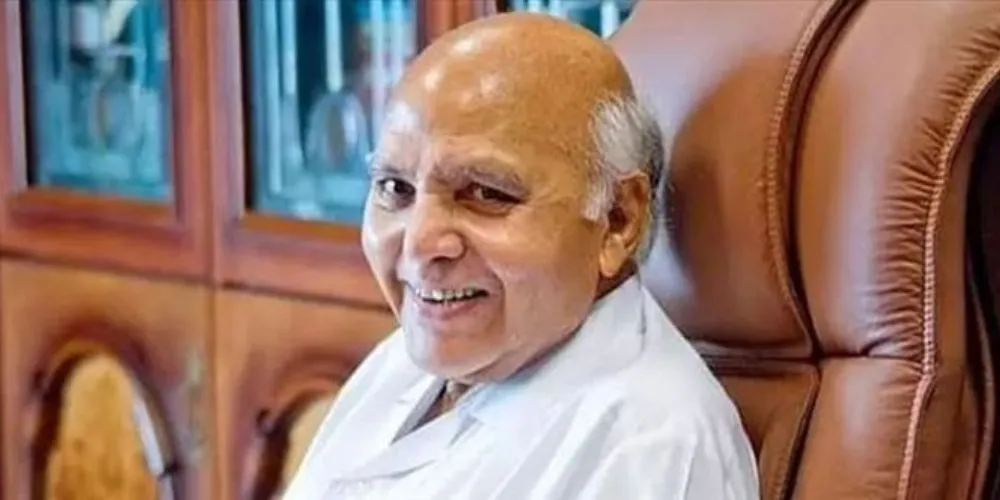
Image Credit: India Herald
India’s media landscape mourns the loss of one of its most influential figures, Ramoji Rao, who passed away early this morning at 87. The founder of the ETV Network and Ramoji Film City, Rao breathed his last at Star Hospital in Hyderabad, where he was admitted on June 5 after suffering from high blood pressure and breathing difficulties.
Doctors reportedly attempted to stabilise his condition with a stent and ventilator support, but his health deteriorated. Rao’s passing leaves a void not just in the media world, but also in the hearts of millions who admired his entrepreneurial spirit and commitment to social causes.
From Humble Beginnings to Media Mogul
Born in 1936 in Chebrolu village, Andhra Pradesh, Rao’s journey is a testament to perseverance. He started his career as a teacher but soon gravitated towards journalism. In 1973, he launched Eenadu, a Telugu daily, which revolutionized regional journalism with its innovative approach and focus on social issues. The success of Eenadu propelled him to establish the ETV Network in 1995, one of India’s first regional satellite television networks.
ETV, with its diverse channels catering to various languages and genres, challenged the dominance of national networks and brought regional voices to the forefront. Rao’s vision for ETV wasn’t just entertainment; he used the platform to promote education, social awareness, and cultural exchange.
Ramoji Film City: A Dream Of Ramoji Rao Realized
Another big project of Rao’s, Ramoji Film City, established in 1996, is Asia’s largest integrated film complex. This sprawling facility spread over 1666 acres, boasts hi-tech studios, shooting locations, and entertainment facilities. Ramoji Film City not only revolutionized Indian filmmaking but also positioned Hyderabad as a major filmmaking hub.
A Legacy Beyond Media
Rao’s influence extended beyond the media. He was a philanthropist who actively supported education, healthcare, and social welfare initiatives. He established the Ramoji Foundation, which works on rural development, women’s empowerment, and environmental protection.
Rao’s commitment to ethical journalism and social responsibility earned him numerous accolades, including the Padma Vibhushan, India’s second-highest civilian award.
Tributes Pour In
Politicians, business leaders, celebrities, journalists, and countless ordinary citizens across the country have expressed their condolences.
Prime Minister Narendra Modi, in a tweet, called Rao “a visionary leader who played a pivotal role in shaping India’s media landscape.” Leaders from various political parties lauded his contribution to regional journalism and social development.
Film personalities, including actors, directors, and producers, shared their memories of working at Ramoji Film City and praised Rao’s dedication to the industry. Journalists have hailed him as a champion of press freedom and a role model for ethical journalism.
An End of an Era
Ramoji Rao’s passing marks the end of an era in Indian media. He was a true visionary who transformed the landscape with his innovative ideas and unwavering commitment to social good. His legacy will continue to inspire generations of media professionals, entrepreneurs, and social activists.




